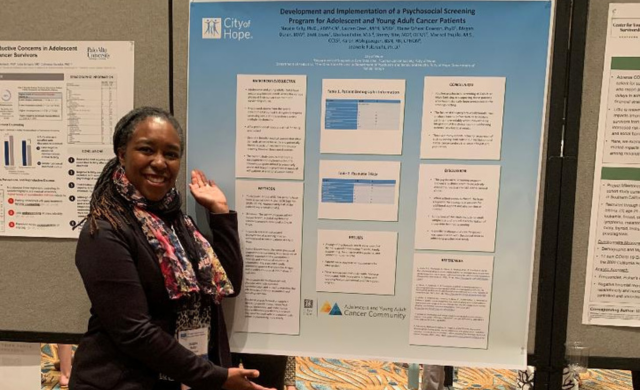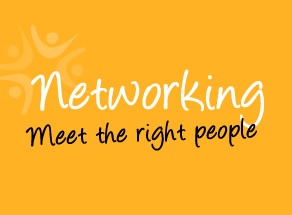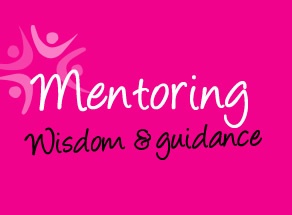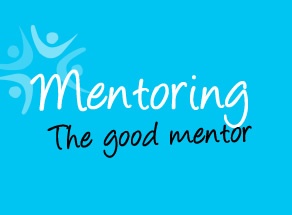
Neuropsychologist Opens Doors to Help Patients Be Their Best Selves After Treatment
10/26/2023 06:00AM | 7333 viewsYou never know what might open a new door for you.
When Natalie Kelly was in college, she came across an issue of of a trade publication that her mother, a physical therapist, had received in the mail. It featured neuropsychology on the cover, because neuropsychologists often have a large role in rehabilitation settings, and an article within the issue that became her first exposure to the career path she eventually pursued.
At that point, Dr. Kelly had recently changed her major at Vanderbilt University from Biology to Child Development. Throughout her undergraduate coursework she started getting more exposure to neuropsychology. During that time, neurologist and author Oliver Sacks came to speak at her university. She had already read some of his books and she found his talk inspiring.
“From that point I knew I wanted to be a neuropsychologist and I wanted to work with children.”
Today, Natalie Kelly, Ph.D., ABPP-CN is associate clinical professor of psychology and a clinical neuropsychologist in the Department of Supportive Care Medicine at City of Hope – one of the largest cancer research and treatment organizations in the United States, and one of the leading research centers for diabetes and other life-threatening illnesses.
Neuropsychologists are experts in how the brain reacts to disease and injury, and how the brain relates to behavior and thinking. At City of Hope, Dr. Kelly evaluates patients who are having cognitive issues related to the treatment they’re receiving for cancer or other diseases. Those cognitive issues might include memory impairment, forgetfulness, attention difficulties or more.
She is board certified in both clinical neuropsychology and pediatric neuropsychology – in fact, she was part of the first cohort to achieve that specialty pediatric certification. She works primarily with adolescents and young adults who have cancer.
“It's such a privilege to be able to support patients and their parents going through this challenging phase. Even when their medical treatment is over, the emotional effects and the cognitive effects can last. That's the focus of my expertise. I’m there to provide resources, to be a source of support, and to evaluate and assess their needs from a cognitive and psychological perspective.”
She often works with people after they’ve completed treatment and are in survivorship. Adapting to life after treatment can be challenging.
“I have been really amazed by the resilience of families. Parents have weathered the storm with their children through the acute phases of their treatment, and now they're trying to get back into the groove of life.”
A big part of her role is providing verification for people who have lingering cognitive effects and need accommodations at school. For example, if a student took a year off for treatment and is now going back to college, they may need accommodations for test taking. That usually requires professional documentation of those needs.
“That's a big role that I play. It’s a privilege to help them move forward in their goals after they've been through so much.”
For example, there was a young woman Dr. Kelly has known since she was about eight and now she's 18. Dr. Kelly has been in touch with the family over the course of this young woman’s development, and now she’s in college.
“I had the opportunity to provide the documentation she needed, with the benefit of having her history of cognitive functioning at my fingertips. I was able to clearly document what she needs for school, and she was able to communicate that to get what she needed. Now she's in college and she's pursuing her degree. It’s a privilege to watch a child develop and grow. There's actually a number of patients I've seen since they were young children.”
Dr. Kelly has been collaborating with peers to further develop programming resources and connect with other institutions around the needs of the young adult population.
“I love knowing that I can provide insight and support for these families across their lives. Diseases like cancer or sickle cell disease can have an influence on neurodevelopment for children and young adults, because the effects of the disease are present throughout the brain’s developmental stages. Even if the disease is cured, there can still be neurodevelopmental impacts.”
A Rewarding Path
Dr. Kelly completed her bachelor of science degree in child development at Vanderbilt University and then went on to earn a master of science and then doctorate of philosophy degree from Indiana University-Purdue University-Indianapolis (IUPUI), in the field of clinical rehabilitation psychology.
She was a psychology intern at Children’s Hospital of Michigan, then pursued a postdoctoral fellowship in pediatric neuropsychology at Cincinnati Children’s Hospital Medical Center. That’s where she was first introduced to oncology, the study and treatment of cancer.
After completing her training, she joined City of Hope in 2011. In addition to her clinical work with patients, she was also the director of the Neuropsychology Clerkship for 10 years and trained local doctoral-level psychology students in conducting neuropsychological evaluations. Her research interests include understanding cognitive concerns in the adolescent and young adult population across cancer diagnosis groups.
Dr. Kelly wants to make neuropsychology more broadly accessible, as a supportive care service for individuals with a cancer diagnosis and also as a career option for those interested in joining the field.
“There’s a big push to develop more inclusive norms for neuropsychology that would include individuals who are not primarily English speaking. There are providers who can offer neuropsychological services in Spanish, to support the clinical and cultural needs of Spanish speakers.”
Dr. Kelly is a member of the Society for Black Neuropsychology. She serves as a mentor and helps reach out to students to introduce them to career possibilities– in the same way that newsletter article did for her so many years ago.
That article opened the door for her, and now she loves being able to open doors for others through her work.
“The best thing I could hear from someone is if they told me, ‘The work you did opened doors for me. It cleared barriers for me. It provided a pathway for me to be my best self, to be who I would like to be in this world.’ That’s the best compliment I could ever hear.”






In many ways, this mirrors the evolution of our surroundings. Just as individuals seek spaces that support their well-being, finding the right home can be a transformative experience. A thoughtfully designed environment isn’t just about luxury or aesthetics—it’s about creating a space where people feel whole, at peace, and inspired. This is especially true in places like Dubai, where stunning villas https://dubaivilla.com/sale/villas/jumeirah-golf-estates aren’t just properties but personal sanctuaries that reflect ambition, resilience, and a vision for the future.
HIII